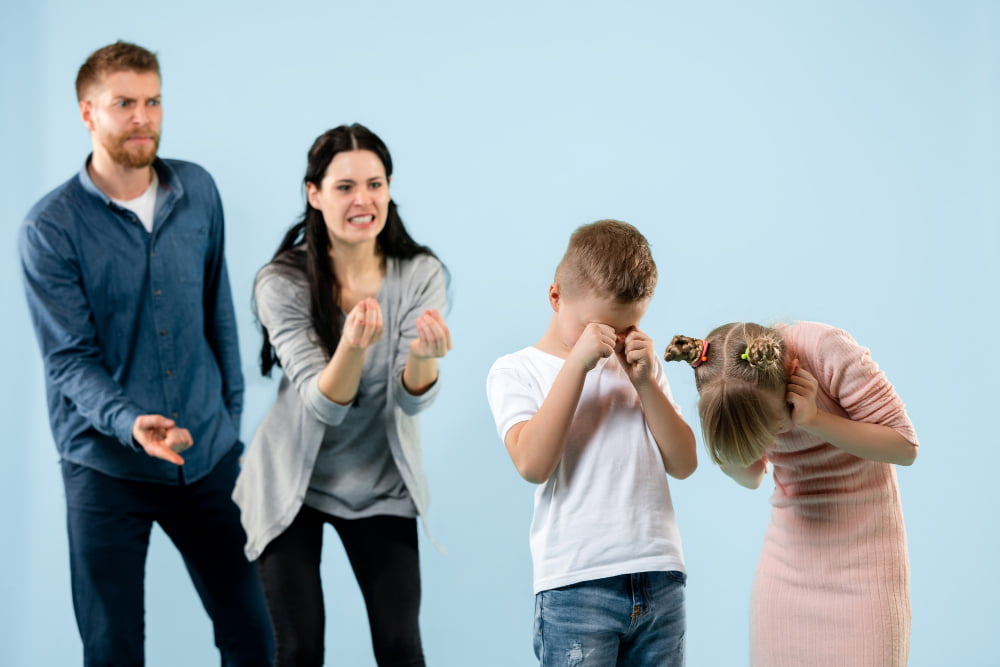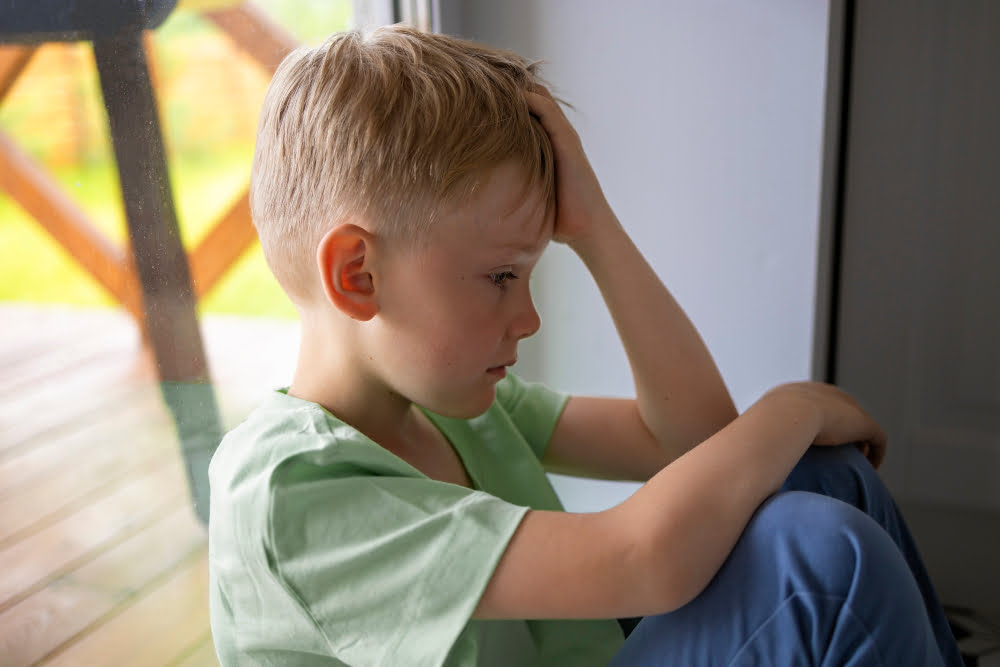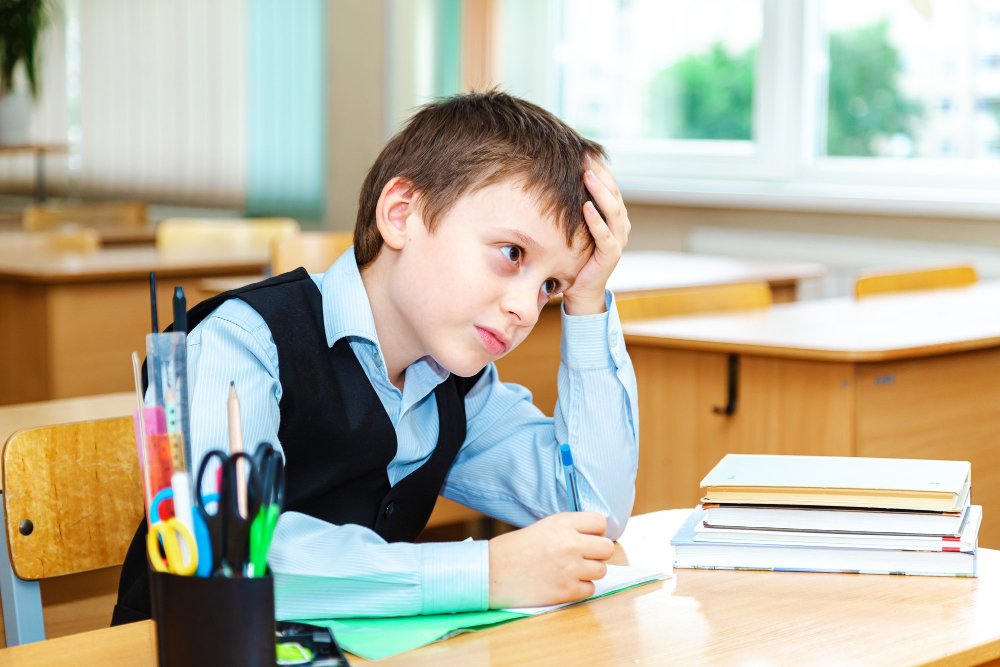Exploring the harmful effects and long-term consequences, this blog post delves into toxic parenting styles that can significantly impact a child’s growth and development.
Toxic parenting styles can have long-lasting effects on children, shaping their self-esteem, worldview, and relationships. Recognizing these harmful patterns is the first step towards breaking the cycle and fostering healthier interactions.
This article will examine four toxic parenting styles: authoritarian, neglectful, permissive, and enmeshed. Each section will delve into the characteristics, potential impacts, and ways to counteract these harmful dynamics.
By understanding these toxic patterns, one can begin the journey towards healthier parenting practices, promoting the emotional and psychological well-being of their children.
Key takeaways:
- Toxic parenting can have long-lasting effects on children.
- Recognizing toxic parenting styles is the first step towards improvement.
- Narcissistic parenting can lead to anxiety, low self-esteem, and relationship issues.
- Emotional manipulation and control can hinder a child’s emotional development.
- Inconsistent discipline and neglect can cause behavioral and emotional problems.
Here You Will Learn:
Defining Toxic Parenting

Toxic parenting is characterized by chronic emotional neglect and manipulation, often resulting from a parent’s unresolved emotional issues or unmet needs. These harmful behaviors may include, but are not limited to, over-controlling tendencies, constant criticism, lack of empathy, and mood instability.
These patterns can lead to a dysfunctional parent-child relationship, creating a home environment that represses the child’s emotional growth and development. Understanding these behaviors is crucial to breaking harmful cycles and fostering healthier, happier family dynamics.
What Are Toxic Parents?

Toxic parents are frequently characterized by patterns of manipulative or neglectful behavior that may cause emotional harm to their children. These individuals may lack the ability to express unconditional love, often using their affection as a tool for manipulation or control.
This can manifest in several ways, from constant criticism and belittling to overtly controlling or selfish behaviors. It’s essential to note that these people might not be aware of their toxicity, given they also might have been victims of similar parenting styles in their own childhood.
They fail to understand the emotional distress their behavior can cause, perpetuating damaging generational cycles. The harmful effects of such parenting can lead to a host of psychological issues in children, spanning from low self-esteem to severe anxiety and depression.
Understanding the nature of toxic parents sets the foundation to unravel with precision, the specific negative parenting styles, and their impacts.
Signs of Abusive Parenting

Abusive parenting extends beyond physical violence; it can be emotional and psychological, often leaving deep-seated scars that are invisible to the naked eye. One notable sign involves frequent belittling or humiliation, often done in the guise of ‘jokes’ or ‘teasing.’ This can create a pervasive feeling of worthlessness in the child.
Domination and control are another red flag. In efforts to maintain power, abusive parents might restrict their children’s activities, meddling excessively in their personal lives or imposing strict, often unreasonable rules.
A parent’s refusal to recognize or respect a child’s individuality also signals abusive behavior. This is evident when a parent attempts to live vicariously through their child, disregarding their personal interests, talents, and desires.
These behaviors can inflict detrimental emotional damage. Recognizing these signs is crucial in protecting children and advocating for a healthier, safer environment.
Signs Of Toxic Parenting

Significant characteristics can indicate a harmful parental behavior pattern. Constant criticism, regardless of the child’s actions, can shake their self-esteem. Overly controlling behavior, dismissing the child’s feelings, and resorting to humiliation or degradation as punitive action may also be indicative.
Scapegoating, where a specific child is repeatedly blamed, or extreme comparison between siblings consistently, causes emotional harm. A parent regularly guilt-tripping their child for their emotions and actions, often claiming they know best due to their experience, can foster a manipulative environment.
A healthy parental bond is based on mutual respect and empathy. Identifying these signs is the first step towards fostering a healthier parent-child relationship.
The Effects of Narcissistic Parenting

Children exposed to narcissistic parenting often find themselves in a world where their own needs and feelings are systematically devalued. The parent prioritizes their image, self-esteem, and personal needs above their child’s. This dynamic can lead to a series of short-term and long-term effects.
In the short-term, children may experience confusion, anxiety, and low self-esteem. They may constantly seek approval and fail to express their emotions freely.
Over the long term, this parenting style can lead to serious mental health issues, such as depression or anxiety disorders. Commonly, children of narcissistic parents may have issues forming healthy relationships, struggle with identity formation, and grapple with chronic self-doubt.
The key to mitigating these effects lies in recognizing the narcissistic behaviors and seeking professional help, with therapy often being a useful tool for both parent and child, fostering healthier interactions in the future.
Emotional Manipulation in Parenthood

Emotional manipulation often masks itself subtly yet has profound effects on a child’s emotional development. Tactics may include guilt-tripping, gaslighting, withholding affection, playing the victim, and conditional love.
Through these methods, a child may endure unnecessary emotional turmoil, leading to heightened anxiety, low self-esteem, and difficulty establishing healthy relationships in adulthood.
Breaking free from this pattern involves recognizing and taking necessary steps to promote emotional honesty and open communication.
Promoting unconditional love and support can cultivate stronger parent-child relationships, fostering improved self-esteem and emotional health in children.
Recognizing Controlling Parenting Behaviors

Control can manifest in various ways: enforcing strict and unreasonable rules, suppressing a child’s individuality, or making decisions without considering the child’s perspective.
Incessant questioning about their activities and excessively monitoring their actions are other signs.
Often, children of controlling parents may feel suffocated, fearful of making decisions, and unsure about their abilities.
Such behaviors can cripple a child’s confidence and independence, leading to self-doubt and low self-esteem in adulthood.
It’s crucial that parents provide guidance, not control, allowing children to develop necessary life skills and build their self-confidence.
Overly Strict Parenting Consequences

Imposing rigid and inflexible rules, an overly strict parent might inadvertently stifle a child’s ability to think independently, contribute to high levels of stress and anxiety, and potentially lead to a lower self-esteem.
Interactions in childhood can shape a person’s communication style and establish patterns for future relationships.
Consequently, children subjected to this parenting style may grow up to be submissive, having difficulties in establishing healthy boundaries, or may rebel and exhibit antisocial behaviors as they enter adulthood.
To avoid these negative outcomes, it’s important to balance discipline with love, create a supportive environment that encourages open communication, and promote the development of critical thinking and decision-making skills.
The Dangers of Inconsistent Discipline

Insofar as child development is concerned, inconsistency in discipline can lead to a myriad of issues including erratic behaviour, insecurity, and defiance.
When rules and consequences shift unpredictably, children struggle to understand and internalize expectations, causing confusion and potentially building resentment.
This inconsistency can also undermine authority, making it difficult for the child to respect boundaries.
In the long run, a child subjected to capricious disciplinary measures may develop emotional problems, like anxiety or sadness, as they grapple with unreliable structures for their behavior.
Additionally, these children could mirror their parents’ inconsistent behavior, leading to problems in school and other social contexts.
Hence, maintaining consistency in discipline is crucial for fostering a secure, respectful, and understanding environment for your child.
Impact of Ignorant Parental Attitudes

Ignorance in parenting can manifest in various ways including disregard for a child’s feelings, lack of interest in their activities, or dismissal of their thoughts and concerns. This attitude often results from a lack of understanding about a child’s developmental needs.
Consequences can be severe, as this ignorance can lead to a failure to provide the emotional support necessary for a child’s healthy development. Targeted interventions such as parental education and cognitive-behavioral therapy can be beneficial. These interventions provide parents with an understanding of child development stages and their emotional needs. Also, they equip parents with strategies to interact positively and effectively with their children.
However, it’s imperative to remember that transformation doesn’t happen overnight. Patience coupled with consistent efforts will eventually lead to positive change, improving the quality of parent-child relationships.
The Role of Comparative Parenting in Child Wellbeing

While it’s normal for parents to sometimes compare their children, frequently resorting to this behavior can be detrimental. Children subject to comparative parenting may develop inferiority complexes and a sense of jealousy or competition against siblings. Abandoning their genuine interests, they might strive to secure approval, often leading to emotional exhaustion.
Instead, parents should emphasize each child’s unique strengths and capabilities, fostering an environment of mutual respect and individuality. Promoting healthy competition and setting realistic expectations also help in cultivating a supportive family dynamic. Establishing these principles nurtures a child’s self-esteem, emotional maturity, and overall wellbeing.
Unsupportive Parenting and Childhood Trauma

Trauma in childhood is not solely caused by catastrophic events. On the contrary, everyday interactions can subtly inflict pain without immediate signs. Children depend on their parents for emotional support; when this is lacking, it can create deep-seated feelings of insecurity and worthlessness.
These painful feelings, if not addressed, can persist into adulthood, resonating throughout personal relationships and decision-making processes.
Chronic dismissal of a child’s feelings can lead to emotional dysregulation, difficulty forming relationship bonds, and poor self-esteem. Interaction patterns that involve demeaning, disregarding or neglecting a child’s emotional needs can be as damaging as physical neglect or abuse.
Supporting a child involves active listening, respecting their sentiments, and assisting them in navigating their reactions. Failing in consistent emotional support can trigger internalization of negative self-concepts, potentially escalating to self-destructive habits or abusive patterns in adulthood.
Altering these harmful patterns, through conscious effort and potentially professional help, can break the cycle of trauma and ensure more fruitful, secure relationships for the child moving forward.
Excessive Criticism and Negative Feedback

Left unchecked, a torrent of constant negativity can drastically impact a child’s self-esteem. Children may begin to internalize harsh judgments, leading to self-doubt and decreased confidence. Over time, they may even attribute failures to personal shortcomings rather than situational factors, perpetuating a cycle of self-deprecation and negativity.
To counteract this, it’s crucial that parents foster a culture of encouragement at home. Compliment progress, not just successes, and focus more on the effort put in than the outcome achieved. Reiterate that mistakes are a healthy part of the learning process.
In fostering a safe, supportive environment, children learn to value their strengths, cultivate resilience, and regard failures as stepping stones, not stumbling blocks. Find a balance in feedback, navigating between constructive criticism and indiscriminate praise. It’s about guiding and teaching, yet allowing autonomy and self-confidence to flourish. This delicate balance can fuel a child’s growth and development, preparing them for the hurdles and victories of life beyond the immediate household.
Uncovering the Effects of Parental Neglect

While neglect can sometimes be unintentional due to a parent’s preoccupations or life circumstances, its effects can result in numerous potential issues for a child. These can range from delayed social and emotional development to potential behavioral and academic problems, which can persist into adulthood.
Neglect tends to cause feelings of worthlessness and insecurity, as children may interpret the neglect as a sign of being unloved or unwanted. This can lead to difficulties in forming positive relationships in adulthood. Learning difficulties may also result, as neglectful parents are less likely to engage in stimulating activities that boost cognitive development.
To correct the potential damage of neglect, many mental health professionals suggest positive reinforcement, increased involvement in a child’s life, and therapy for both parents and children. Understanding and changing neglectful behaviors can help to break this destructive cycle and can foster healthier and more fulfilling relationships.
Effects Of Toxic Parenting On Children

Exposure to toxic parenting can result in a host of negative outcomes in children. These impacts tend to span into adulthood, producing psychological and emotional distress that can affect relationships, career advancement, or overall quality of life.
Key issues may include socialization problems or difficulty establishing and maintaining healthy relationships. They may also struggle with self-esteem, often feeling unworthy or inadequate.
From a psychological perspective, these children may develop anxiety disorders and depression due to chronic stress. Furthermore, exposure to erratic or abusive behaviors can lead to Post Traumatic Stress Disorder (PTSD) or toxic stress syndrome.
Behaviorally, these children may exhibit poor academic performance, aggressive behavior, or substance abuse in their effort to cope with their trauma. It’s essential to recognize that these are potential outcomes, not certainties. Understanding these implications can help individuals break away from disruptive patterns and seek necessary support and treatment.
FAQ
What are toxic parent styles?
Toxic parent styles often involve authoritarian parenting, excessive control, the misuse of fear for compliance, and the imposition of unreasonable demands that affect their child’s adult lives.
What is an example of a toxic mother?
Example of a toxic mother: A toxic mother imposes unrealistic demands, reacts with aggressive criticism or guilt when confronted with denial, and expects you to prioritize her needs over your personal life.
What is the psychology of toxic parents?
The psychology of toxic parents is typically characterized by manipulative and controlling behavior, critical attitudes toward their children’s choices and lifestyles, difficulty permitting emotional independence, and habitual judgement of their child’s social circle.
How does toxic parenting impact a child’s future relationships?
Toxic parenting can engender trust issues, insecurity, and difficulty maintaining healthy boundaries in a child’s future relationships due to the chronic emotional distress experienced during their formative years.
What are the signs of toxic parenting in childhood and adolescence?
Signs of toxic parenting in childhood and adolescence include constant criticism, manipulation, lack of empathy, emotional volatility, conditional love, and placing expectations that are too high on the child.
Can toxic parenting be rehabilitated and how?
Yes, toxic parenting can be rehabilitated through psychotherapy, parenting classes, self-reflection, and consistent effort to change behavior patterns.